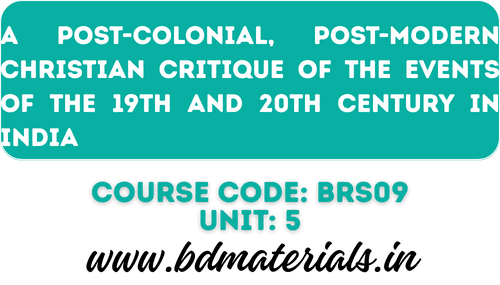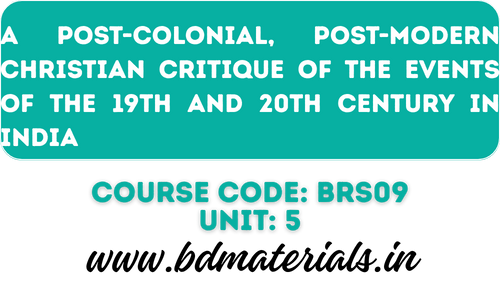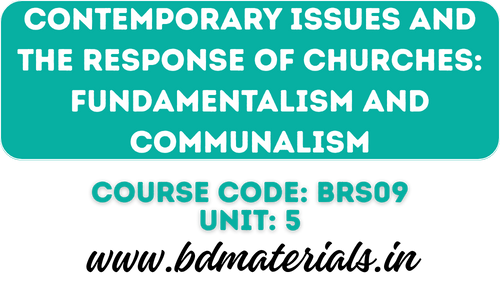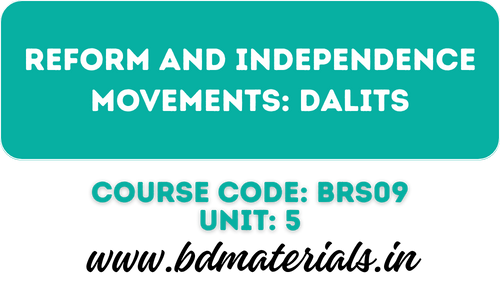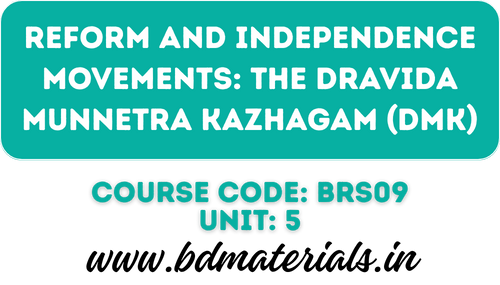ALIGARH MOVEMENT: Sir Syed Ahmad Khan (1817-1898)
The Moghal Empire had lost its hold in India by the beginning of 19th century, but continued its nominal existence 50 years more. It created great distress among Muslims and developed negative feeling against British Government for the destruction of Muslim Kingdom; therefore, they failed to take the advantage of English education. This resulted in bringing change in the relative positions of Hindus and Muslims in India, for example, Hindus adopted English education, improved their wealth and strengthened their political position, but Muslims declined in all aspects.
SYED AHMAD KHAN
He was born in 1817 at Delhi in a noble Muslim family, which had right relations with British government, hence, found a position in its administration. The contributions of Raja Ram Mohan Roy to Hindu society and Syed Ahmad Khan to Muslim society are similar in many aspects. He brought four kinds of reforms in Muslim society.
- Political Reforms: India, after it became non-Muslim state, is Dar-ul-harh (house of War) in Muslim’s thought, but Syed believed that India is Dar-ul-Islam (house of Islam). Muslims had freedom to practice their own religion under British rule, perhaps, he accepted that the wellbeing of the Muslims in India lay in a new attitude towards the British and the scientific influences of the West and thought that the British rule was valuable to India. Syed remained faithful to the British and saved the lives of many Europeans during the Sepoy Mutiny in 1857. He founded the British Indian Association in 1866 to focus Indian opinions on political questions and represent them in the British Parliament in order to get sympathy of government. Finally he won the confidence of the British government and became a member of Viceroy’s Legislative Council and was honored with the title sir. He tried well to remove ill feelings among Muslims and restore right relations with British Government.
- Educational Reforms: If Muslims want to develop, Syed viewed, they should adopt the methods of Western science and education and give importance to social reforms. He discussed this matter seriously with friends and started an organization called “Association for the study of Western Sciences” in 1863 and spent 17 months focusing his attention on studying English education, life and politics. He made a detailed study of the working of schools and colleges. He started, after he returned to India; a magazine in Urdu called Tahzibul Akhlaq (reform of Morals) dealing with subjects of religious, social, and education. He fought against the Muslim prejudice with regard to western science; advocated social freedom; tried to rouse the Muslims to self-confidence and vigorous activities.For his liberal views and close attachment with English people, the orthodox Muslims called him as an “atheist” and “anti-Christ”, He was excommunicated, slandered and persecuted, but he did not stop his work and established a School at Aligarh in 1875 which became Mohammedan-Anglo Oriental College” by 1877. Here he introduced English and scientific education what he learned from Oxford and Cambridge Universities in England. Both Islamic studies as well as Western sciences were taught there. This college became a centre for the enlightenment and progressive thought and it was recognized as the” first modern institution of Muslims”. Though this college was started for Muslims, from the beginning it was open for all communities. He conducted “All India Mohammedan educational Conference in 1866 and enlightened Muslims to a sense of their educational backwardness and promoted Western learning among Muslims.
- Religious Reforms: He began to spread modern views in Muslims religious life. He did not think that Christians corrupted the Bible, as many Muslims believe. He suggested Muslims not to treat the Christians as “infidels” and “enemies” and further remarked that the Bible and Quran do not contradict each other when they are properly interpreted. He repudiated the view held by some Muslims that Hindus are “infidels” and stood for social accommodation and coordination between Muslims, Hindus and Christians. He advocated Hindu-Muslim unity and formed “Indian United Patriotic Association”. He believed in national solidarity and encouraged people to have social dealings, mutual affection, love and sympathy between religious communities providing place for religious tolerance and harmony.
- Social Reforms: Muslims view against women on Purdah (veil) and education challenged by him. He worked as a champion of the cause of women. He encouraged women to get education and opened separate college for women in Aligarh. He also opposed the practice of polygamy among Muslims. He worked for women liberation.
THE ALIGARH MOVEMENT
At the beginning British government thought the Muslims were a threat to their power since they had seized powers from the Muslim rulers, but the ALigarh movement brought a change in government’s thinking. Muslims elite trained in the MAO College had high ambitions for government jobs and the government patronized them. Syed was accepted as the representative of the Indian Muslims and his views were given great importance by the government. The British government funded, when the MAO College was in financial crisis. After the death of Syed there was struggle for succession. British government maintained close relations with Aligarh movement.
Syed asked Muslims in 1887 not to join Congress. He and other Muslims were afraid as to what would happen to their community if the British should leave. They thought that it would be worse for the Muslims to be ruled over by Hindus. Therefore Syed opposed the Indian National Congress and wanted the British to rule over India forever. He advocated secular state and wanted religion and politics should be separated. It was in 1906 that the Muslim League was born as a political party, which was responsible for the demand of separate state-Pakistan. Syed was not directly responsible for Pakistan and indeed he worked for national integration.
In 1920 the MAO College developed as “Aligarh Muslim University”, which became an intellectual centre for the demand of Pakistan after the death of Syed. Shri. Muarri Lal writes”Aligarh University was the outcome of the British policy of “divide and rule”. It made a gap between Hindus and Muslims. Now Aligarh stands for Anti-national and separatist activities. AMU is now administered by the Central Government of India. There is considerable place given for women and people of other communities of different parts of the world.
In the Islamic world, Aligarh is known for its secular and scientific learning. Since AMU was founded primarily for the educational uplift of Muslims, Islamic studies like Muslim philosophy, Islamic history, Muslim law. West Asian studies, Arabic, Persian and Urdu get special attention. Some programs gave importance for social services. The movement started in Aligarh brought great renaissance in Muslim community.
Friendly Note
Bachelor of Divinity Materials is your go-to resource for comprehensive Biblical studies, supporting students in Bachelor of Divinity (B.D.) and other theological courses. Our platform offers access to the full syllabus, detailed answers, and a vast collection of assignments, study guides, articles, and research papers to help you excel academically.
We provide downloadable PDFs of study materials, including books and journals, for convenient learning anytime, anywhere. Whether preparing for exams or conducting research, our resources cater to both students and scholars in biblical studies.
Committed to empowering theological learners, we aim to deliver high-quality, authentic study materials. Explore Bachelor of Divinity Materials to deepen your understanding of God’s Word and Christian doctrine, making it a valuable resource for aspiring ministers and anyone dedicated to theology.


